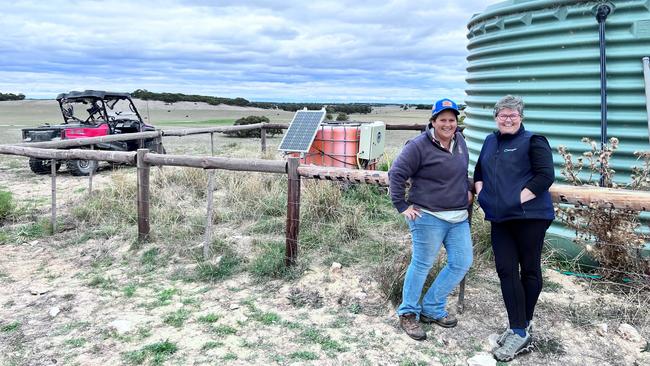Shine Awards: No fart jokes please, this is world-saving science
A team of researchers is developing a revolutionary drinking water delivery system to introduce methane-reducing additives into the diet of cattle.

A team of researchers is developing a revolutionary drinking water delivery system to introduce methane-reducing additives into the diet of cattle.
If successful, the world-first technology offers an invaluable tool in the industry’s battle to lower cows’ methane emissions and contribute towards meeting a likely global reduction pledge.
It would also provide an answer to the challenge facing graziers whose stock are so widely dispersed they cannot be handfed daily supplements to reduce their methane emissions.
The DIT AgTech, Central Queensland University and Meat and Livestock Australia project is testing a range of methane-reducing compounds to determine whether they can safely and consistently be delivered to cattle via automated watering systems.
Toowoomba-based Vivienne McCollum, who is co-leading the three-year project, said the technology could enable farmers to demonstrate how they had lowered carbon emissions, enabling them to generate credits.
It works by piggybacking methane-reducing additives such as Rumin8 or Agolin on to DIT’s supplement delivery system to ensure the products are consumed in remote situations where the stock cannot be monitored.
“An animal will drink its required amount of water, according to its body weight, so we can make sure that ‘X’ amount of nutrients is supplied in every mouthful or litre of water they’re drinking,” Ms McCollum said.
Tanks filled with supplements are located next to watering troughs and can be remotely monitored and controlled.
“Most methane-reducing additives have only really looked at being used in an intensive situation, such as in dairy or feedlots,” Ms McCollum said.
“There are only a couple of million animals in the whole (approximately 27 million) herd in Australia that are on a dairy or feedlot and 80 per cent are in rangelands.
“If we really want to make a big impact on methane reduction for the industry, we need to have a delivery mechanism to be able to put the methane-reducing supplements out en masse.”
Ms McCollum said she was determined to improve the agriculture sector: “What really drives us is we’re doing something that can really make a big impact on food security and the environment.”
Her passion and dedication to the challenge are the reasons she has been nominated in this year’s Shine Awards, which put a spotlight on the stories of rural and regional women.
A partnership between Australian rural and regional masthead The Weekly Times and Harvey Norman, the Shine Awards recognise unsung leaders who make a difference to their communities.
Ally Gravolin, who nominated Ms McCollum for the award, said her colleague went above and beyond in her work and had driven the early success of the project: “Viv has such a great passion for the work we are doing around sustainability and enabling farmers to produce more with less.”




To join the conversation, please log in. Don't have an account? Register
Join the conversation, you are commenting as Logout